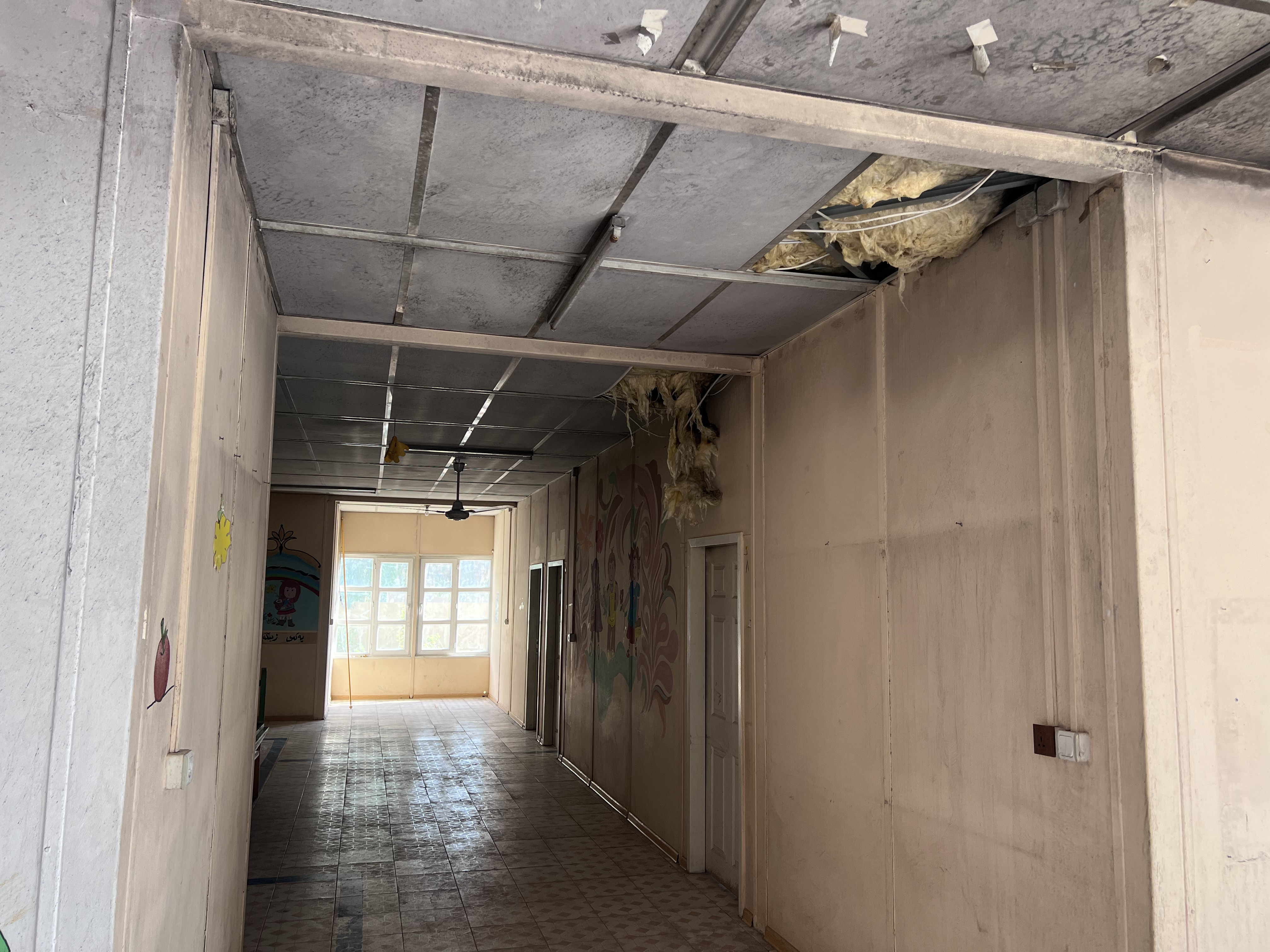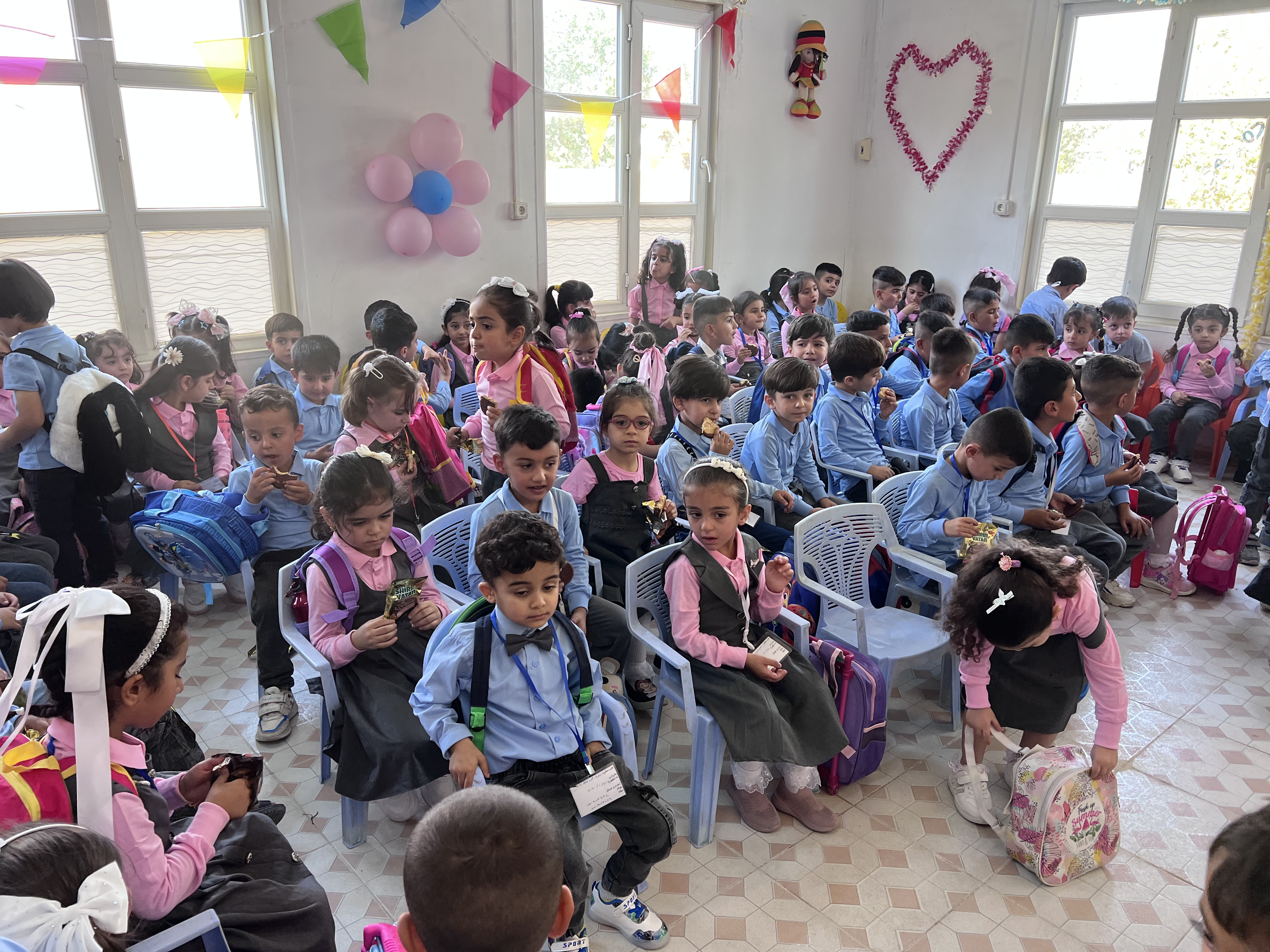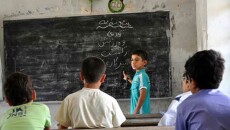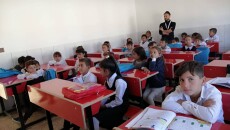There is a single kindergarten affiliated with the Kurdish Studies Department in Daquq district of Kirkuk northern oil-rich city, and it is severely damaged and this year it was unable to accommodate half of those included in its admission.
Last summer, a fire broke out in the "De Kok" kindergarten in the center of Daquq town, causing significant damage to it and most of the kindergarten's halls and rooms are no longer suitable for receiving children.
"A large part of the kindergarten burned down, only two rooms are still usable, so we cannot receive children as in previous years," Gulshan Mohammed, the director of the kindergarten, told KirkukNow.
Despite months having passed since the fire, it has not been rehabilitated neither by the Erbil-based Kurdistan Regional Government KRG nor the Federal Government.
"De Kok" is the only kindergarten affiliated with the Kurdish Studies Department funded by the KRG in Daquq. It used to accommodate about 200 children, but this year its capacity has decreased to only 100.
In addition to the kindergarten, there are 54 schools affiliated with Kurdish Education in the district. Education like other public sectors of the disputed territories is divided between Baghdad and Erbil as schools sponsored by Baghdad study Arabic curriculum while those funded by the KRG are in Kurdish.
Ari Hussein, a resident of Daquq, was unable to register his daughter in the "De Kok" kindergarten this year and had to resort to kindergartens affiliated with the Arabic and Turkmen studies.
"The kindergarten burned down and is no longer able to accommodate more children. We appeal to the government to provide another building for the kindergarten."
Kurds in Kirkuk were happy for educating their kids their native language. The process was funded by the KRG which employed over 8,000 teachers which lamed in 2014 for irregular payment of monthly salaries and funding.
The tension between Baghdad and Erbil in 2017 had a negative impact on Kurdish education process in Kirkuk as the KRG was incapable of providing regular funding pushing the tutors for boycott and protest for several times.

The kindergarten is crowded with children who were gathered in the two rooms that were not affected by the fire. The other sections of the building are unsafe and their ceilings are about to collapse.
"This year we received less than 100 children, and we registered the rest on a reserve list. We only have two rooms left, each containing about 50 children," the kindergarten director hopes that the relevant authorities will act to rehabilitate the kindergarten or provide them with a new building.
"De Kok" kindergarten, which receives children aged four and five, was established since the 2004-2005 school year for all of Daquq, home to 16 neighborhoods in the district center.
Daquq district is 44 km south of Kirkuk and is inhabited by a mixture of Kurds, Turkmen and Arabs, estimated at over 97,000 people. Daquq is one of the fertile districts of Kirkuk famous for its production of maize, fig and home to over 3,000 fish ponds. The people of Daquq villages, some of whom are Kakais, are engaged in agriculture and livestock breeding.
Kurdish education unit in Kirkuk funded by the KRG has 7,751 teachers and employees teaching Kurdish curriculum to 100,000 pupils in 500 public schools. The main language for education in Iraq is Arabic while in the three provinces of Kurdistan Region of Iraq KRI.
The KRG has opened special directorates for Kurdish education in the disputed territories of Kirkuk, Nineveh and Diyala which alike its Kurdish counterparts suffer lack of budget for accurate monthly payroll and shortage of buildings, staff, curriculums and utilities.
The oil rich city of Kirkuk, Iraq's second largest oil reserves, is ethnically a mixed province for 1.7 million Kurds, Sunni and Shiite Arabs, and Turkmen. It has long been at the center of disputes between Baghdad and Erbil.







